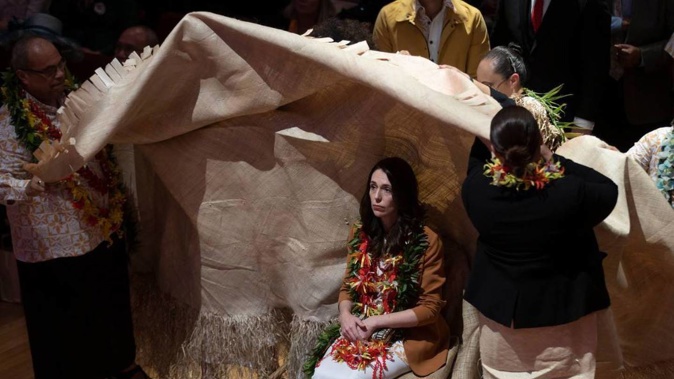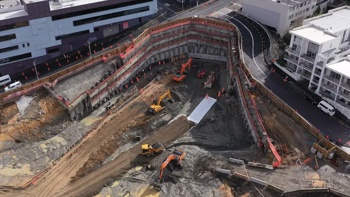
A review by Mike Heron KC has said the government would need to pass new legislation to end the practice of dawn raids entirely. Even if raids were not abolished, legislation would help limit their use to certain situations.
The Heron review was commissioned by MBIE after it was revealed dawn raids continued after then Prime Minister Jacinda Ardern’s 2021 apology to Pacific People for historic Dawn Raids.
The review found that despite the immense publicity of the apology in 2021, nothing was done by ministers or officials to change the way the Government sought people for deportation. The review found the apology “created a reasonable expectation within the Pasifika community that ‘dawn’ intrusions into houses would cease (or at least would be a very last resort”.
It found there “does not appear to have been an attempt to implement the principles of the government’s apology or alter out of hours visits in light of it”. Only now, after the review was initiated, was MBIE updating its internal guidance for dawn raids to align them with the apology.
The review found the apology appeared “to ring hollow”, and the Pacific community had a reasonable expectation “that early morning intrusions into households would cease (or at least be exceptional)”.
It said this was because the pandemic meant very few deportations were taking place anyway, and most feedback to the apology related to an amnesty.
This meant dawn raids, called “out of hours compliance activity” by officials - usually a 6am visit to the house of someone to deport them - continued both before an after the apology.
Heron recommended the Government consider amendments to the Immigration Act to specify the criteria for a raids, if they were to continue. The review said the Government should consider whether raids involving residential addresses should be stopped entirely, and specifying this in legislation.
The review also recommended updating Standard Operating Procedures (SOPs) and guidelines for officers so that they reinforced dawn raids were a “last resort” and that they consider other people present in a home, like children or elderly.
Immigration Minister Andrew Little Photo / Marty Melville
The review was sparked by the raid of a Tongan national in April 2023. The person arrived in November 2019 on an RSE visa to work at a South Island orchard and returned in 2020 to work in August 2020 and February 2021.
In April, they employer of the person notified INZ that they had left the orchard and said they had gone to Auckland to get married to someone they had met on the orchard.
INZ later tracked the person down to an Auckland address, leaving for work between 6.15am and 6.45am each morning. An “out of hours visit” was approvd by a National Compliance Manager in March 2023, in line with existing rules.
On 19 April, six INZ compliance officers and two police met at the person’s address. Two officers were assigned to enter the person’s house.
The man’s wife and three children were present in the house at the time of the raid.
The man was eventually granted a six-month visa to explore a pathway to residence.
Dawn Raids loom large in the memory of many Pacific Island New Zealanders for the way they were targeted by the most infamous dawn raids in the 1970s.
In 1986, the Race Relations Conciliator found that between 1985 and 1986, while Pacific peoples comprised roughly a third over-stayers, they represented 86 per cent of all prosecutions for overstaying.
Over the same period, over-stayers from the United States and Great Britain who also comprised roughly a third of overstayers made up only 5 per cent of prosecutions.
These statistics were used by Minister for Pacific Peoples, Aupito William Sio to argue the raids had “created a decades-long false impression of the status of Pacific New Zealanders”.
/cloudfront-ap-southeast-2.images.arcpublishing.com/nzme/U5TO4QNUA5D3ZF5DKEI2VIGYKE.jpg)
Immigration laws would need to change to stop dawn raids. Photo / 123RF
But the review also found that Pacific Peoples were no longer the primary victims of dawn raids.
Since 2015, there have been 95 dawn raids, which found 117 people for deportation, of whom 101 were eventually deported.
Of those 101 people, eight were Pacific Island nationals, while 47 were Chinese nationals. This was largely the result of a pivot from focusing on horticulture visas to focusing on construction, where more Chinese nationals work.
The review spoke to a range of community representatives about this, and found very divergent views.
“When presented with evidence that Chinese and Indian persons made up the majority of deportees, the Pasifika community told us that this was still racist – the racism had turned to other parties, " the review said.
“We were also told that, regardless of how ‘unintrusive’ these visits were, they were causing significant social and psychological stress,” it said.
There were different views in other communities. While one representative of the Chinese community said dawn raids should not occur, a member of the Indian community said they “held little sympathy for persons without a visa”.
The review found that some communities supported continuing deportations because not deporting overstayers undermined the citizenship identity of that community.
“An Indian community representative, for example, told us that the community is very concerned with maintaining its “citizen” identity in New Zealand. They think it is important that unlawful persons are removed from the community lest they cause a stain on the reputation of other, lawful citizens,” the report said.
Similar feedback was received by some in the Pacific community, who told the review they supported deporting people who had committed crimes.
MBIE Chief Executive Carolyn Tremain said MBIE was already working on updating SOPs and guidance for compliance officers to reflect the Government’s Dawn Raids apology.
“I do want to again acknowledge the impact the Dawn Raids of the 1970s had on the Pacific community and that the trauma from those remains today,” she said.
“We accept that we should have reflected the Government’s apology in our guidance sooner and are prioritising putting this right. The new guidance will specify when and how out of hours visits to residential addresses should take place and make it clearer that they should only be carried out as a last resort when all other alternatives have been considered,” she said.
Mike Heron KC review’s five recommendations:
- The Government should consider amending the Immigration Act 2009 to specify the criteria for out-of-hours compliance visits and whether those involving residential addresses be stopped entirely, or limited to specific situations.
- Standard Operating Procedures (SOPs) and guidelines for compliance officers should be updated to reinforce that out-of-hours compliance visits are a matter of last resort and reasonable alternatives should have been considered beforehand. SOPs should also be updated to reflect policy about when and how these kinds of visits should occur and given the lack of legislative time available this could be given priority.
- Any assessment of out-of-hours visits should consider the impact on anyone else who may be present, in particular children, but also the elderly or other vulnerable individuals, as well as New Zealand citizens or residents. The way in which the operation is carried out should take into account relevant cultural factors.
- Any decision to undertake an out-of-hours compliance visit should also include an assessment of reasonableness, proportionality and public interest.
- Any out-of-hours compliance activity should be authorised by the relevant compliance manager and the national manager before it can occur, although it is acknowledged there are arguments for elevating authorisation further.
Take your Radio, Podcasts and Music with you

/cloudfront-ap-southeast-2.images.arcpublishing.com/nzme/OLFKZE3PQREVFHZEADKSMJAX74.JPG)








